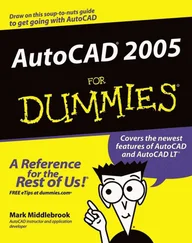1 ...8 9 10 12 13 14 ...20 Medium-range theories claim to provide answers to questions asked a majority of the time but not all the time. Therefore, they’re not universal in nature. Medium-range theories are most often used in political behavior studies. A good example is the theory that women are more liberal than men. Although that holds true in the U.S., Great Britain, and Germany, it’s not true in France or Spain. So the theory is valid most of the time but not all the time. That makes it a medium-range theory and not grand theory, which has to be valid all the time.
Narrow-range theories are useless in the field of political science. They’re discouraged by the field, and political scientists who use them are looked down upon. Narrow-range theories claim to occasionally provide an explanation for behavior or events. In other words, a narrow-range theory can explain an event once in a while. So if the questions are what causes war, a narrow-range theory could explain only why war can occur once in a while and not provide an explanation of why war occurs a majority of the time or all the time.
Looking at Historical Sociology
Historical sociology is one of the newer schools in political science. It traces its origins back to the 19th century but didn’t become popular until the 1960s. In the 19th century, some of the most famous social scientists, including Emile Durkheim, Karl Marx, and Max Weber, were active, and all were historical sociologists. They based their works on historicism, believing that all academic work in the social sciences is subjective and biased, because researchers bring their own values into their research. For this reason, they were attacked by positivists who believed that the social sciences could be a true science and value-neutral.
Historical sociology understands that the present is a product of the past and can be understood only by using a historical approach. People make history under circumstances encountered from the past. A society is constructed historically by individuals who are constructed historically by society. Individuals are shaped by society, which in turn influences their thinking. Therefore, the political scientist has to focus on the historical and social period of a person to detect the true meaning behind a scholar’s work.
So what is historical sociology and how does it work? First, the social scientist looks at one or more societies and analyzes the way groups within society interact with each other. These groups can be classes, like in modern society, or castes like in more traditional societies. The way these groups interact in turn shapes form of government and policy outcomes.
For example, the way social classes interact with each other can determine what form of government a society has. Barrington Moore, Jr. demonstrates this in his classic work Social Origins of Dictatorship and Democracy (Beacon Press). His research shows that social class alliances shape governments. Whenever an aristocracy aligns itself with the peasantry, a fascist government develops. If, however, the working class aligns itself with the peasantry, socialism is the result. Finally, if an aristocracy aligns itself with the middle classes, capitalism develops.
Seeking Benefits: Rational Choice Theory
With the advent of political economy (see Chapter 13) in the 1970s, political science sees a fusing of the disciplines of political science and economics. Suddenly, research techniques from both disciplines are available to the researcher, one of them being rational choice theory. Political scientists use rational choice theory to explain human behavior and also state behavior. The theory is fairly simple: People and countries will, based on the information they have at the time, engage in actions from which they benefit the most. At the same time, they’ll also engage in actions from which they’ll lose the least. Quite simply, people, such as politicians and even countries, will do what is best for them and what will cause the least damage to them.
Chapter 3
Dealing with Political Culture
IN THIS CHAPTER
 Introducing political culture
Introducing political culture
 Understanding a civic culture’s role in democracy
Understanding a civic culture’s role in democracy
 Exploring postmaterialism
Exploring postmaterialism
Every nation-state in the world contains one or more different cultures. A culture determines the language people speak, the religion they practice, and their behavior toward others. It’s based on the traditions found in a society and the history people have shared. At the same time, people also have a distinct political culture. A political culture is defined as a set of attitudes and practices held by citizens that in turn shapes their political behavior in society. In other words, a political culture determines how people feel about their political system and whether they support it. Not surprisingly, governments take a keen interest in attempting to shape political culture.
This chapter discusses the importance of political culture and how it shapes society. The concepts of civic culture and political socialization are important points to political culture as well as moving from materialism to postmaterialsm. Read on to find out more on these topics.
Analyzing Political Culture
In his work The Republic (see Chapter 14), Plato discusses the importance of political culture and political socialization for a political regime. The political culture of a society shapes political values and political behavior and has to be in line with the political system. If it isn’t, the long-term survival of the regime is in question. For this reason, according to Plato, the young in a society have to be politically socialized, which is a fancy term for being politically indoctrinated, with the values of the regime. Only political socialization can guarantee survival of the regime in the long run. (See the later section “ Working on Political Socialization” for more on political socialization.)
The importance of political culture
Every society instills certain political values into its people. Political values are defined as deeply held views about how government is supposed to work and what a person’s role in a political system is. These beliefs and values are what shapes the political culture of a nation. The political culture of a country is thus determined by the history of a people and its religious, economic, and social values. If a government is able to manipulate a political culture, it can enhance support by the people. Therefore, interfering in the shaping of a political culture has become commonplace in the world.
Both democracies and authoritarian governments attempt to influence the political culture in a country. In totalitarian societies, such as the Soviet Union, classes designed to indoctrinate the population are mandatory at all school levels. In the U.S., civic education classes, designed to accomplish similar objectives, are also required in most states.
Touching on political socialization
 Political socialization refers to the process of how people acquire their political values (see the section “ Sustaining Democracy: The Civic Culture,” later in this chapter, for more information).
Political socialization refers to the process of how people acquire their political values (see the section “ Sustaining Democracy: The Civic Culture,” later in this chapter, for more information).
Читать дальше

 Introducing political culture
Introducing political culture Political socialization refers to the process of how people acquire their political values (see the section “ Sustaining Democracy: The Civic Culture,” later in this chapter, for more information).
Political socialization refers to the process of how people acquire their political values (see the section “ Sustaining Democracy: The Civic Culture,” later in this chapter, for more information).










